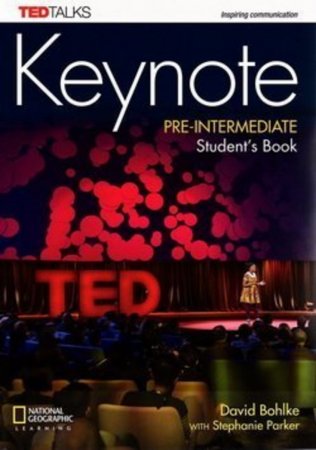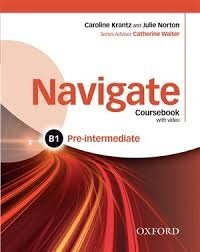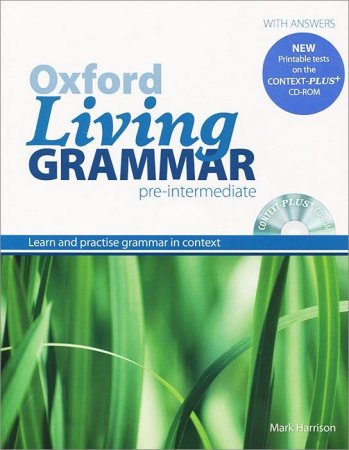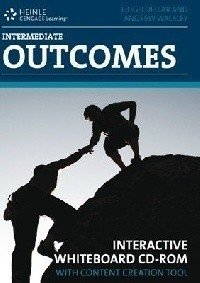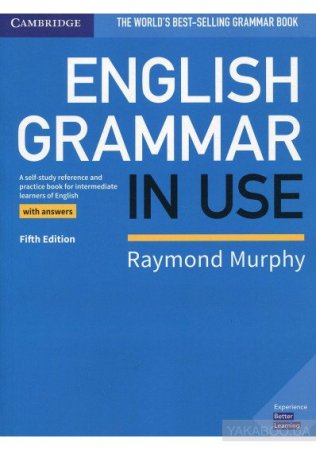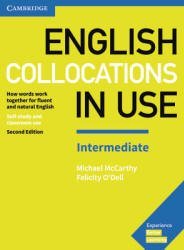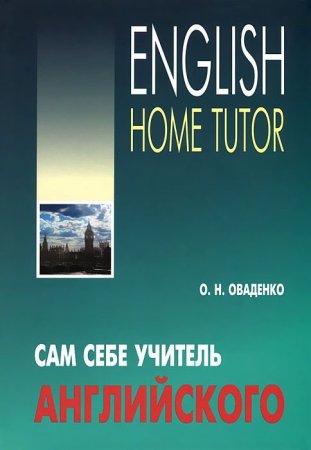Цель заброшена
Автор не отписывался в цели 6 лет 25 дней
English = B2
First step.
Критерий завершения
Level test
Личные ресурсы
Time, motivation, Internet resources, books
Экологичность цели
It's up to me!
-
Life (Pre-Intermediate)
![]()
-
Unit 1 - Health
-
Unit 2 - Competitions
-
Unit 3 - Transport
-
Unit 4 - Adventure
-
Unit 5 - The environment
-
Unit 6 - Stages in life
-
Unit 7 - Work
-
Unit 8 - Technology
-
Unit 9 - Language and learning
-
Unit 10 - Travel and holidays
-
Unit 11 - History
-
Unit 12 - Nature
-
-
Keynote (Pre-intermediate)
Inspiring Communication
Featuring remarkable people communicating passionately and persuasively, TED Talks provide inspiring ideas and an unparalleled source of authentic language. Keynote invites learners to explore life-changing stories for a deeper understanding of the world, developing the confidence and skills needed to express themselves powerfully and proficiently in English.
- Engaging and authentic TED Talks drive an integrated-skills syllabus alongside 21st century outcomes like communication, collaboration, creativity, and critical thinking.
- Real-world content presented through readings, infographics, and interviews motivates learners to engage with language meaningfully.
- Unique presentation skill sections based on best practices demonstrated by TED speakers teach transferable strategies that develop fluency, confidence and compelling delivery.
![]()
-
1 - Conversation
-
2 - Family connections
-
3 - Global stories
-
PRESENTATION 1
-
4 - Music
-
5 - Good design
-
6 - Inspiring people
-
PRESENTATION 2
-
7 - Ethical choices
-
8 - Better cities
-
9 - Giving
-
PRESENTATION 3
-
10 - Mind and machine
-
11 - Nature
-
12 - Discovery
-
PRESENTATION 4
-
Krantz C., Norton J., - Oxford Navigate. B1 Pre-intermediate. Coursebook
Navigate is a brand new, six-level General English course tailored exclusively to adults. The course takes an innovative approach to reading and listening based on academic research as to how adults best learn languages. It teaches reading and listening from the bottom up, giving learners the skills they need to understand the next text they will read and hear, not just the one they are reading or hearing now. The content has been extensively piloted and reviewed in ELT classrooms across the world, giving teachers the confidence that it really works.
![]()
-
1 Time
-
2 Inside outside
-
3 Going up, going down
-
4 Changes and challenges
-
5 Stuff and things
-
6 People
-
7 Travel
-
8 Language and learning
-
9 Body and mind
-
10 Food
-
11 World
-
12 Work
-
-
Oxford Living Grammar - Pre-Intermediate
- Уникальный раздел Grammar in action объясняет, как использовать грамматику в в ситуациях ежедневного общения
- Рамки Word Focus содержат интересные идиоматические выражения
- Банк заданий Over to You в конце книги предлагает тренировку в более свободном режиме, а также примеры ответов
- Современные иллюстрации и упражнения в приложении к реальным ситуациям делают серию привлекательной для подростков и взрослых
- Уровни Elementary, Pre-Intermediate способствуют подготовке студентов к экзамену КЕТ; Intermediate готовит к экзамену РЕТ
- Context-Plus+СD ROM: Интерактивная практика изученного материала с упражнениями по чтению и аудированию позволяет студентам выстраивать и записывать собственные диалоги.![]()
-
01 Present continuous
-
02 Present simple
-
03 Past simple and past continuous
-
04 Present perfect
-
05 Past simple and present perfect
-
06 The future
-
07 Question words
-
08 Subject and object questions
-
09 Can, could, and would
-
10 May, might, could, and should
-
11 Must and have to
-
12 Should
-
13 The infinitive
-
14 The -ing form
-
15 The passive
-
16 Conditionals
-
17 Connecting future sentences
-
18 Articles
-
19 Pronouns and possessives
-
20 Quantifiers
-
21 Pronouns and determiners
-
22 There, it, this, that, etc.
-
23 Comparison of adjectives
-
24 Adverbs
-
25 Prepositions (1)
-
26 Prepositions (2)
-
27 Reported speech
-
28 Relative clauses
-
29 Conversational English
-
30 Clause and sentence building
-
-
Outcomes (Intermediate)
- 16 units based round common topics. Each unit has three interlinked 'lessons'of 50-90 minutes.The unit contents give clear practical outcomes. The first lesson teaches language leading to Conversation Practice. The second and third spreads develop reading or listening and teach more grammar and vocabulary connected with the topic.
- 8 writing units. The two-page writing units on pp. 120-135 teach different types of writing for everyday life and exams. Each has a model text. Grammar or Vocabulary, Keywords for writing and Practice.
- 4 review units. Each review has a learner training discussion, two pages of games, tasks and pronunciation exercises to revise language and then a two-page test including a listening exercise.
- Grammar. Thirty-five points of grammar are covered. Each Crammar section links to the previous text. An explanation or guided questions teach meaning. Exercises give controlled and freer practice. There's a link to the grammar reference if you need extra help.
- Language patterns. This is a short translation exercise into the student’s own language and back into English. It draws attention to other aspects of syntax and grammar based on a pattern seen in a text.
- Vocabulary. Vocabulary is carefully chosen to enable students to talk about the topic in the context of English as a lingua franca. Tasks generally move from meaning, to contextualised usage, to personalised practice. Other sections focus on word-building.
- Outcomes Vocabulary Builder (OVB). The separate booklet allows students to look up the meaning of new language which is key to learn, offers several examples of collocations and usage plus a page of revision practice.
- Keywords. Most writing units have a focus on linking words and patterns, which help develop fluent, coherent writing. There's a link to the text, a short explanation and practice exercises.
- Developing conversations. The sections teach typical questions, responses and patterns common to conversation. An explanation clarifies the focus while exercises give controlled practice.
- Conversation practice. A task lets students practise social and practical conversations based on their own experience or through role-play.
- Speaking. These sections give students the chance to exchange ideas.The final speaking task in each unit is a longer task that draws the language and / or the themes of the unit together.
- Listening. These sections are introduced with a short description of the context.There is usually a pre-listening speaking task to generate interest or predict content, followed by tasks to guide students to understand the text and focus on vocabulary.
- Reading. These sections are introduced with a short description of the context. There is usually a pre-reading speaking task to generate interest or predict content, followed by tasks to guide students to understand the text and focus on vocabulary.
![]()
-
01 - MY FIRST CLASS
-
02 - FEELINGS
-
03 - TIME OFF
-
04 - INTERESTS
-
Review 01, Writing 01-02
-
05 - WORKING LIFE
-
06 - GOING SHOPPING
-
07- SCHOOL AND STUDYING
-
08 - EATING
-
Review 02, Writing 03-04
-
09 - HOUSES
-
10 - GOING OUT
-
11 - THE NATURAL WORLD
-
12 - PEOPLE I KNOW
-
Review 03, Writing 05-06
-
13 - TRAVEL
-
14 - TECHNOLOGY
-
15 INJURIES AND ILLNESS
-
16 NEWS AND EVENTS
-
review 04, Writing 07-08
-
Murphy English Grammar in Use
Murphy R. - English Grammar in Use and Hashemi L., Murphy R. - English Grammar in Use
https://www.youtube.com/playlist?list=PLYB0SmefqEsk6b6PRR8mai1oetrWyH7j-
![]()
-
Unit 1 Present Continuous (I am doing).
-
Unit 2 Present Simple (I do).
-
Unit 3 Present Simple и Present Continuous (I am doing and I do).
-
Unit 3 Present Simple и Present Continuous (I am doing and I do).
-
Unit 5 Past Simple (I did).
-
Unit 6 Past Continuous (I was doing).
-
Unit 7 Present Perfect (have done)
-
Unit 8 Present perfect 2 (I have done)
-
Unit 9 Present perfect continuous (I have been doing)
-
Unit 10 Present perfect continuous and simple (I have been doing and I have done)
-
Unit 11 How long have you (been)... ?
-
Unit 12 For and since When ... ? and How long ... ?
-
Unit 13 Present perfect and past 1 (I have done and I did)
-
Unit 14 Present perfect and past 2 (I have done and I did)
-
Unit 15 Past perfect (I had done)
-
Unit 16 Past perfect continuous (I had been doing)
-
Unit 17 Have and have got
-
Unit 18 Used to (do)
-
Unit 19 Present tenses (I am doing /1 do) for the future
-
Unit 20 (I'm) going to (do)
-
Unit 21 Will/shall 1
-
Unit 22 Will/shall 2
-
Unit 23 I will and I'm going to
-
Unit 24 Will be doing and will have done
-
Unit 25 When I do/When I've done When and if
-
Unit 26 Can, could and (be) able to
-
Unit 27 Could (do) and could have (done)
-
Unit 28 Must and can't
-
Unit 29 May and might 1
-
Unit 30 May and might 2
-
Unit 31 Have to and must
-
Unit 32 Must mustn't needn't
-
Unit 33 Should 1
-
Unit 34 Should 2
-
Unit 35 I'd better It's time...
-
Unit 36 Would
-
Unit 37 Can/Could/Would you ... ? etc. (Requests, offers, permission and invitations)
-
Unit 38 If I do ... and If I did ...
-
Unit 39 If I knew... I wish I knew ...
-
Unit 40 If I had known ... I wish I had known ...
-
Unit 41 Wish
-
Unit 42 Passive 1 (is done / was done)
-
Unit 43 Passive 2 (be done / been done / being done)
-
Unit 44 Passive 3
-
Unit 45 It is said that... He is said to ... He is supposed to ...
-
Unit 46 Have something done
-
Unit 47 Reported speech 1 (He said that...)
-
Unit 48 Reported speech 2
-
Unit 49 Questions 1
-
Unit 50 Questions 2 (Do you know where... ? / He asked me where ...)
-
Unit 51 Auxiliary verbs (have/do/can etc.) I think so/I hope so etc.
-
Unit 52 Question tags (do you? isn't it? etc.)
-
Unit 53 Verb + -ing (enjoy doing / stop doing etc.)
-
Unit 54 Verb + to ... (decide to ... / forget to ... etc.)
-
Unit 55 Verb (+ object) + to ... (I want you to ... etc.)
-
Unit 56 Verb + -ing or to ... 1 (remember/regret etc.)
-
Unit 57 Verb + -ing or to ... 2 (try/need/help)
-
Unit 58 Verb + -ing or to ... 3 (like / would like etc.)
-
Unit 59 Prefer and would rather
-
Unit 60 Preposition (in/for/about etc.) + -ing
-
Unit 61 Be/get used to something (I'm used to ...)
-
Unit 62 Verb + preposition + -ing (succeed in -ing / accuse somebody of -ing etc.)
-
Unit 63 Expressions + -ing
-
Unit 64 To ..., for... and so that...
-
Unit 65 Adjective + to ...
-
Unit 66 To ... (afraid to do) and preposition + -ing (afraid of -ing)
-
Unit 67 See somebody do and see somebody doing
-
Unit 68 -ing clauses (Feeling tired, I went to bed early.)
-
Unit 69 Countable and uncountable 1
-
Unit 70 Countable and uncountable 2
-
Unit 71 Countable nouns with a/an and some
-
Unit 72 A/an and the
-
Unit 73 The1
-
Unit 74 The 2 (school / the school etc.)
-
Unit 75 The 3 (children / the children)
-
Unit 76 The 4 (the giraffe / the telephone / the piano etc., the + adjective)
-
Unit 77 Names with and without the 1
-
Unit 78 Names with and without the 2
-
Unit 79 Singular and plural
-
Unit 80 Noun + noun (a tennis ball / a headache)
-
Unit 81 -'s (your sister's name) and of... (the name of the book)
-
Unit 82 Myself/yourself/themselves etc.
-
Unit 83 A friend of mine My own house On my own / by myself
-
Unit 84 There ... and it...
-
Unit 85 Some and any
-
Unit 86 No/none/any Nothing/nobody etc.
-
Unit 87 Much, many, little, few, a lot, plenty
-
Unit 88 All/all of most/most of no / none of etc.
-
Unit 89 Both / both of neither / neither of either / either of
-
Unit 90 All, every and whole
-
Unit 91 Each and every
-
Unit 92 Relative clauses 1: clauses with who/that/which
-
Unit 93 Relative clauses 2: clauses with and without who/that/which
-
Unit 94 Relative clauses 3: whose/whom/where
-
Unit 95 Relative clauses 4: extra information clauses (1)
-
Unit 96 Relative clauses 5: extra information clauses (2)
-
Unit 97 -ing and -ed clauses (the woman talking to Tom, the boy injured in the accident)
-
Unit 98 Adjectives ending in -ing and -ed (boring/bored etc.)
-
Unit 99 Adjectives: a nice new house, you look tired
-
Unit 100 Adjectives and adverbs 1 (quick/quickly)
-
Unit 101 Adjectives and adverbs 2 (well/fast/late, hard/hardly)
-
Unit 102 So and such
-
Unit 103 Enough and too
-
Unit 104 Quite, pretty, rather and fairly
-
Unit 105 Comparison 1 (cheaper, more expensive etc.)
-
Unit 106 Comparison 2 (much better / any better / better and better / the sooner the better)
-
Unit 107 Comparison 3 (as ... as / than)
-
Unit 108 Superlatives (the longest, the most enjoyable etc.)
-
Unit 109 Word order 1: verb + object; place and time
-
Unit 110 Word order 2: adverbs with the verb
-
Unit 111 Still, yet and already Any more / any longer / no longer
-
Unit 112 Even
-
Unit 113 Although/though/even though In spite of / despite
-
Unit 114 In case
-
Unit 115 Unless As long as Provided/providing
-
Unit 116 As (As I walked along the street... / As I was hungry ...)
-
Unit 117 Like and as
-
Unit 118 Like/as if/as though
-
Unit 119 For, during and while
-
Unit 120 By and until By the time...
-
Unit 121 At/on/in (time)
-
Unit 122 On time and in time At the end and in the end
-
Unit 123 In/at/on (position) 1
-
Unit 124 In/at/on (position) 2
-
Unit 125 In/at/on (position) 3
-
Unit 126 To/at/in/into
-
Unit 127 In/on/at (other uses)
-
Unit 128 By
-
Unit 129 Noun + preposition (reason for, cause of etc.)
-
Unit 130 Adjective + preposition 1
-
Unit 131 Adjective + preposition 2
-
Unit 132 Verb + preposition 1 to and at
-
Unit 133 Verb + preposition 2 about/for/of/after
-
Unit 134 Verb + preposition 3 about and of
-
Unit 135 Verb + preposition 4 of/for/from/on
-
Unit 136 Verb + preposition 5 in/into/with/to/on
-
Unit 137 Phrasal verbs 1 Introduction
-
Unit 138 Phrasal verbs 2 in/out
-
Unit 139 Phrasal verbs 3 out
-
Unit 140 Phrasal verbs 4 on/off (1)
-
Unit 141 Phrasal verbs 5 on/off (2)
-
Unit 142 Phrasal verbs 6 up/down
-
Unit 143 Phrasal verbs 7 up (1)
-
Unit 144 Phrasal verbs 8 up (2)
-
Unit 145 Phrasal verbs 9 away/back
-
-
English Collocations In Use. Intermediate. Michael McCarthy and Felicity O'Dell
A good knowledge of collocations (typical word combinations) is essential for fluent and natural-sounding English. Using collocations will improve your style of written and spoken English, and knowledge of collocations is often tested in examinations such as Cambridge FCE, CAE, CPE and IELTS. Learning correct word combinations will also help you avoid common learner errors. English Collocations in Use presents and practises hundreds of collocations in typical contexts. It is ideal for students at good intermediate level and above.
Using collocations will improve your style of written and spoken English: - Instead of 'a big amount', say 'a substantial amount' - Instead of 'think about the options', say 'consider the options'
Using collocations will make your English sound more natural: - Instead of 'get ill', say 'fall ill' - Instead of 'a big fine', say 'a heavy fine'
Using collocations will help you avoid common learner errors: - Instead of 'do a choice', say 'make a choice' - Instead of 'make your homework', say 'do your homework.![]()
-
1 What is a collocation?
-
2 Finding, recording and learning collocations
-
3 Using your dictionary
-
4 Types of collocation
-
5 Register
-
6 Intensifying adverbs
-
7 Everyday verbs 1
-
8 Everyday verbs 2
-
9 Everyday verbs 3
-
10 Synonyms and confusable words 1
-
11 Synonyms and confusable words 2
-
12 Metaphor
-
13 Weather
-
14 Travel
-
15 Countryside
-
16 Towns and cities
-
17 People: character and behaviour
-
18 People: physical appearance
-
19 Families
-
20 Relationships
-
21 Feelings and emotions
-
22 Houses, flats and rooms
-
23 Eating and drinking
-
24 Films and books
-
25 Music
-
26 Sport
-
27 Health and illness
-
28 Computers
-
29 Study and learning
-
30 Work
-
31 Business
-
32 Academic writing 1: giving opinions
-
33 Academic writing 2: structuring an argument
-
34 Laws and punishments
-
35 Crime
-
36 News
-
37 Money
-
38 War and peace
-
39 Global problems
-
40 Time
-
41 Sound
-
42 Distance and size
-
43 Colour and light
-
44 Texture
-
45 Taste and smell
-
46 Number and frequency
-
47 Movement and speed
-
48 Change
-
49 Ways of speaking
-
50 Ways of walking
-
51 Starting and finishing
-
52 Talking about success and failure
-
53 Talking about cause and effect
-
54 Remembering and sensing
-
55 Agreeing and disagreeing
-
56 Talking about beliefs and opinions
-
57 Deciding and choosing
-
58 Claiming and denying
-
59 Liking and disliking
-
60 Praising and criticising
-
-
Оваденко "Сам себе учитель английского языка"
Самый лучший учебник для тренировки перевода с русского на английский и повышения уровня английского языка.
![]()
-
Урок № 1
-
Урок №2
-
Урок № 3
-
Урок №4
-
Урок №5
-
Урок №6
-
Урок №7
-
Урок №8
-
Урок № 9
-
Урок № 10
-
Урок № 11
-
Урок № 12
-
Урок № 13
-
Урок №14
-
Урок №15
-
Урок №16
-
Урок №17
-
Урок №18
-
Урок №19
-
Урок №20
-
Урок №21
-
Урок №22
-
Урок №23
-
Урок №24
-
Урок №25
-
Урок №26
-
Урок №27
-
Урок №28
-
Урок №29
-
Урок №30
-
Урок №31
-
Урок №32
-
Урок №33
-
Урок №34
-
Урок №35
-
Урок №36
-
Урок №37
-
Урок №38
-
Урок №39
-
Урок №40
-
Урок №41
-
Урок №42
-
Урок №43
-
Урок №44
-
Урок №45
-
Урок №46
-
Урок №47
-
Урок №48
-
Урок №49
-
Урок №50
-
Урок №51
-
Урок №52
-
Урок №53
-
Урок №54
-
Урок №55
-
Урок №56
-
Урок №57
-
Урок №58
-
Урок №59
-
Урок №60
-
Урок №61
-
Урок №62
-
Урок №63
-
Урок №64
-
Урок №65
-
Урок №66
-
КАК БЫ ЭТИ ПРЕДЛОЖЕНИЯ СКАЗАЛИ ВЫ?
-
- 1629
- 27 сентября 2019, 18:29
Не пропустите новые записи!
Подпишитесь на цель и следите за ее достижением

